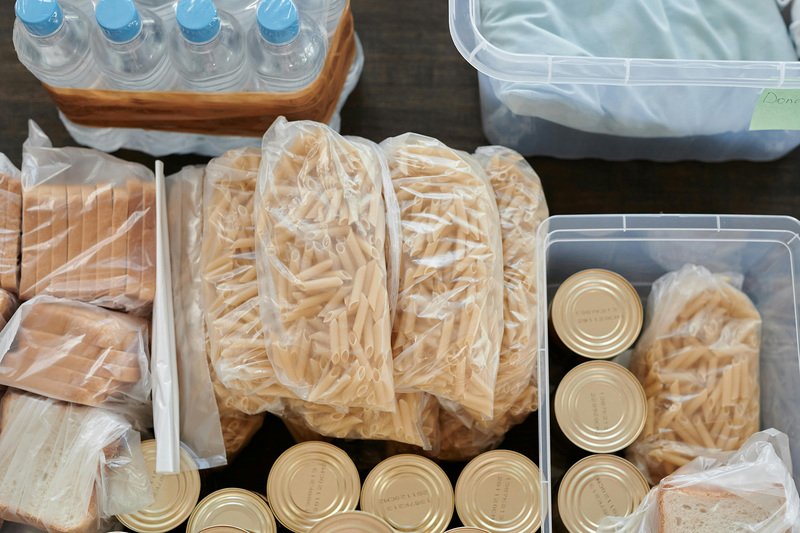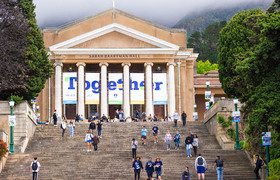Ending student hunger on campus
01 July 2025 | Story Niémah Davids. Photo Pexels. Read time 5 min.
Strolling the halls, pathways and steps on campus, all you are likely to see are bubbly, carefree students taking up spaces, engaged in deep discussion, talking about an upcoming test or tutorial, or the latest fashion trends.
But there are certain things the eyes can’t see, like the stress and anxiety that come with navigating the school-to-university transition and a demanding academic programme; the toll it takes being far away from home and a solid support structure; and the last time some of these students had a balanced, nutritious meal.
It’s a fact that thousands of students go to bed hungry. Buying food and toiletries is simply not a priority when paying for tuition and accommodation cost a fortune and are uppermost on the list. This has exacerbated student hunger and food insecurity among the University of Cape Town’s (UCT) growing cohort of students, and there was urgent need to intervene.
Steps to assist
In 2018, UCT’s Department of Student Affairs (DSA) established the Food Sovereignty Programme to assist students with one meal a day. The goal was to ensure as many students as possible didn’t go to bed hungry. Over the years, the programme has expanded its scope and today provides monthly grocery packs, which contain non-perishable food items, as well as toiletry packs every second month. Vhugala Nthakheni, the DSA’s deputy director for Student Life and Student Governance, said this approach empowers students to self-manage their own groceries and toiletries and develops their agency.
The programme assists both unfunded and underfunded students, and in 2024, distributed close to 10 000 grocery packs. Nthakheni said just last month the number of registered student applicants surpassed the 1 100 mark.
“We work very hard to remove barriers students face during their journey towards becoming successful graduates.”
“At UCT we understand the multidimensional nature of poverty and inequality in our society. So, we work very hard to remove the barriers students face during their journey towards becoming successful graduates who will in time become economically productive members of our society,” Nthakheni said.
The harsh reality
Judging by the number of applicants, the reality is that many students are struggling to make ends meet. And while the programme relies solely on fellow students, staff and alumni’s generous support, Nthakheni said, a lot more is needed to ensure its longevity and sustainability. This, he explained, includes establishing long-term partnerships with external sponsors to keep the initiative going.
This year, the DSA plans to take the initiative to a new level; further expanding the programme to reach a new pool of students, developing educational programmes on nutrition and how to remain self-sufficient, and creating initiatives that seek to empower students to use their available resources to meet their nutritional needs.
“We remain grateful to the many UCT staff, students and external stakeholders who are contributing to this programme. We need your sustained assistance to continue making a positive impact in our students’ lives,” Nthakheni said.
Interventions are important
And interventions like these are important. Nthakheni said past studies have shown that student hunger directly affects academic performance, as well as students’ psychosocial well-being.
“Together we can and will end student hunger on campus.”
For now, he said, the DSA is focused on securing additional funding to keep the initiative going, and the department is committed to ensuring that students don’t go hungry. To achieve this goal, they need additional support. Long-term, he said, colleagues are hard at work developing empowerment programmes geared towards strengthening students’ ability to use their available resources and ultimately achieve food security.
“Together we can and will end student hunger on campus,” Nthakheni said.
Students who wish to sign up for the programme are encouraged to contact Nolindo Wabani.
Contribute to the programme.
A donation of R455 allows the DSA to provide up to two weeks of non-perishable food items, enough for one cooked meal per day, and one month’s supply of toiletries.
 This work is licensed under a Creative Commons Attribution-NoDerivatives 4.0 International License.
This work is licensed under a Creative Commons Attribution-NoDerivatives 4.0 International License.
Please view the republishing articles page for more information.










